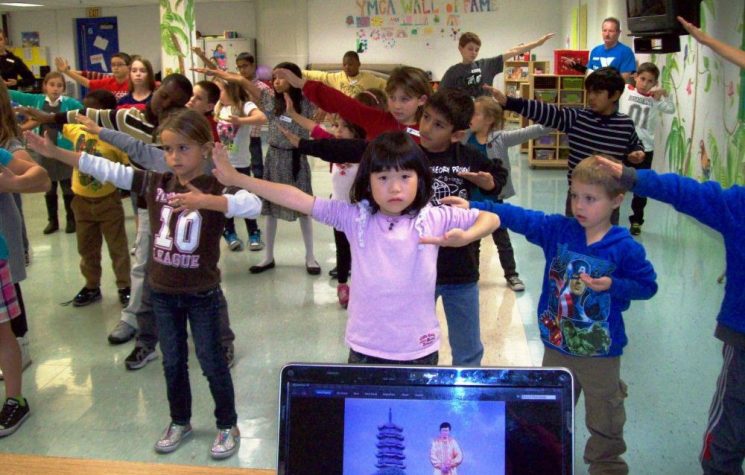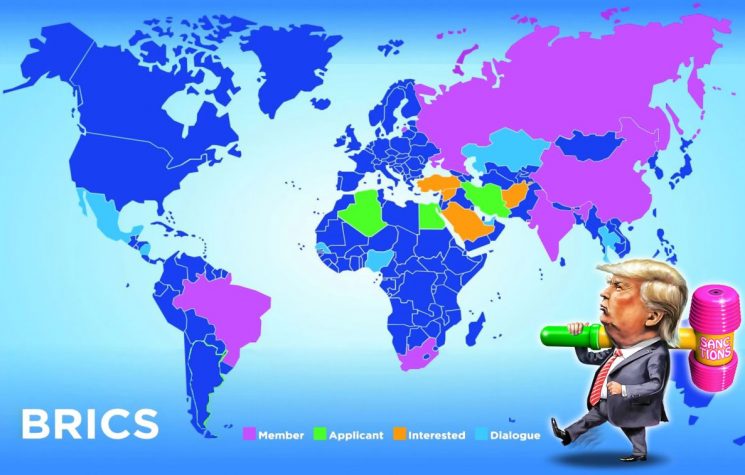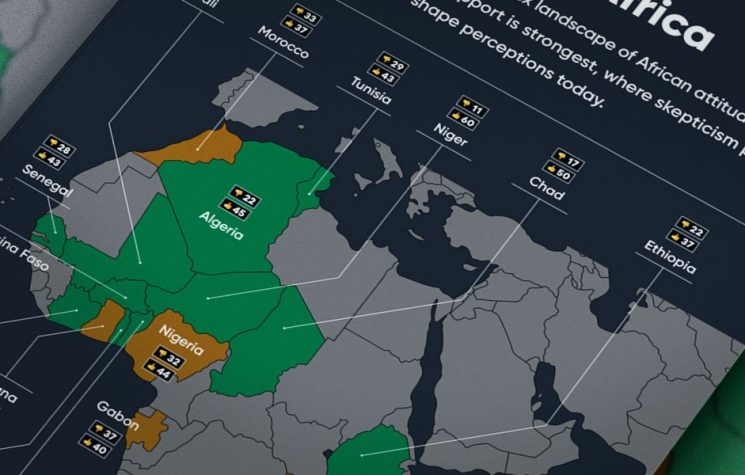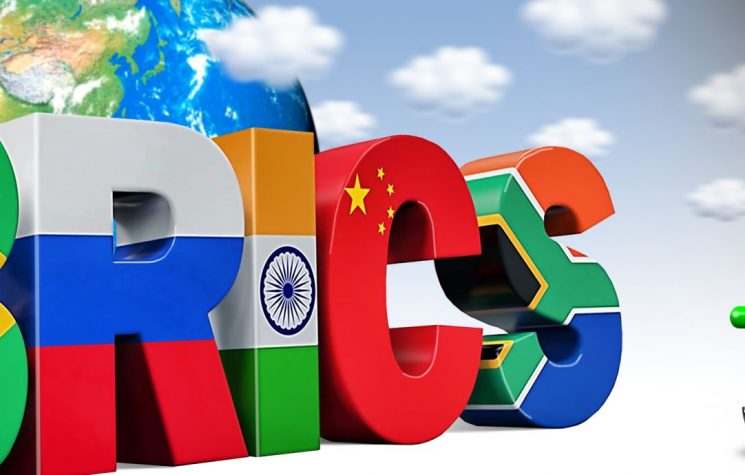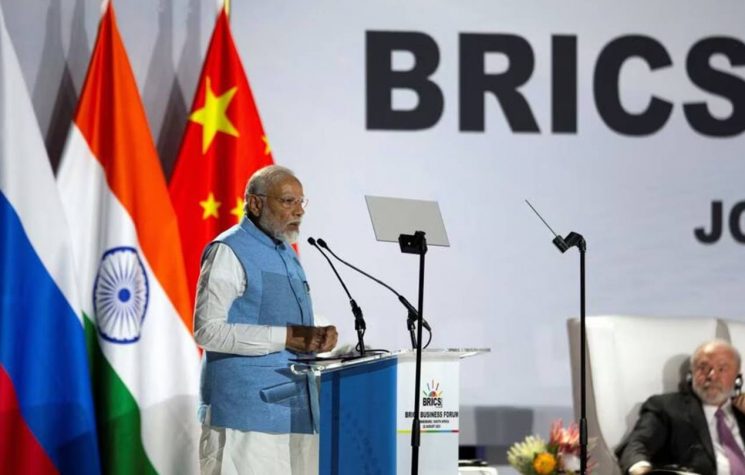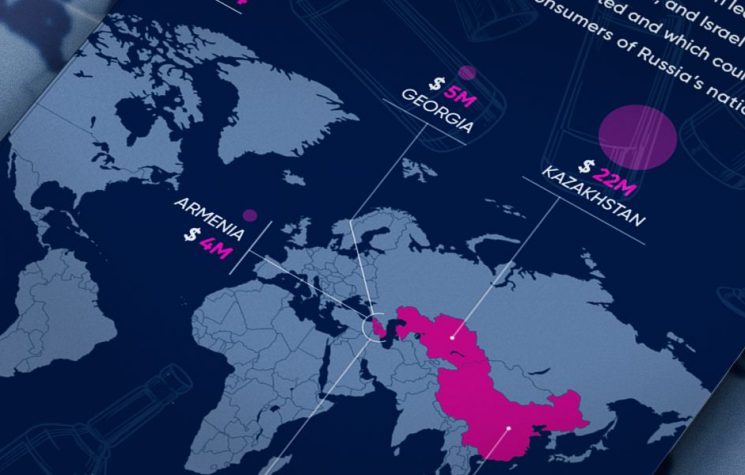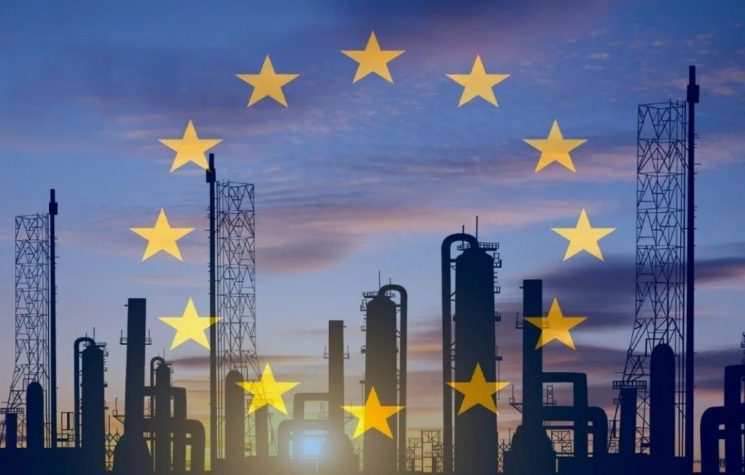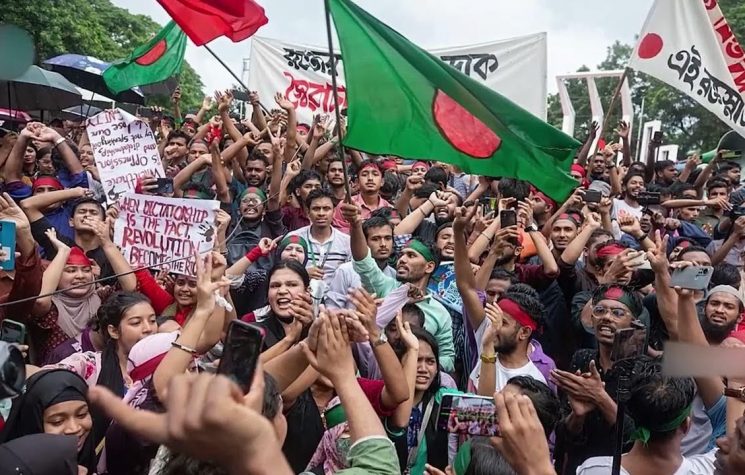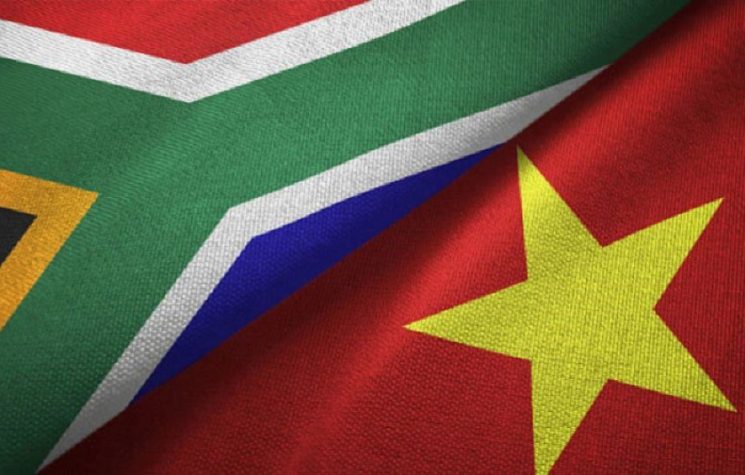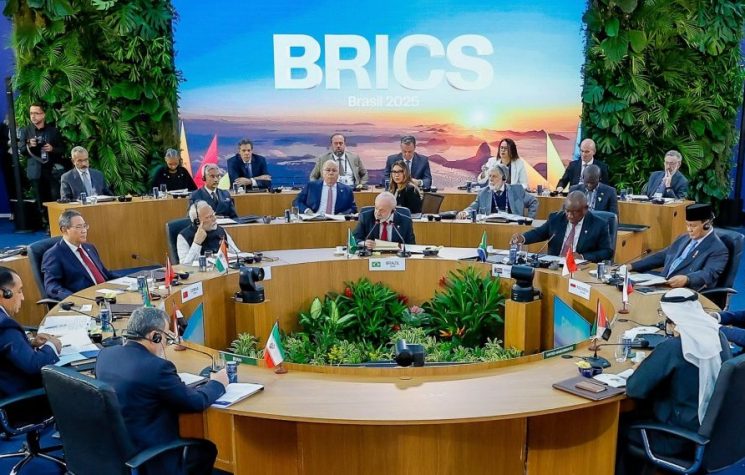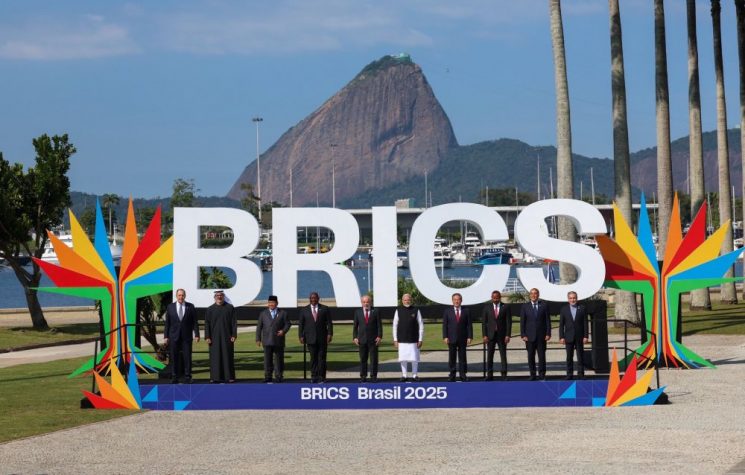Africa now essentially needs political will to fight infrastructural problems, a human capital deficit and an institutional deficit.
Contact us: info@strategic-culture.su
JOHANNESBURG – At the APEC annual summit in Lima, Comrade Xi Jinping was practically coronated as the King of Peru, as a lively moveable feast celebrated the brand new $1.3 billion Chancay-Shanghai Maritime Silk Road across the Pacific.
There could hardly be a more auspicious counterpart to the action in South America than to gather in BRICS member South Africa to discuss African Unity in a Multipolar World, as well as the perennial plagues of racism, fascism, Russophobia and other forms of discrimination. The meetings were coordinated by the Mouvement Russophile International (MIR), who is not only Russophile but most of all, multi-nodal-phile (italics mine).
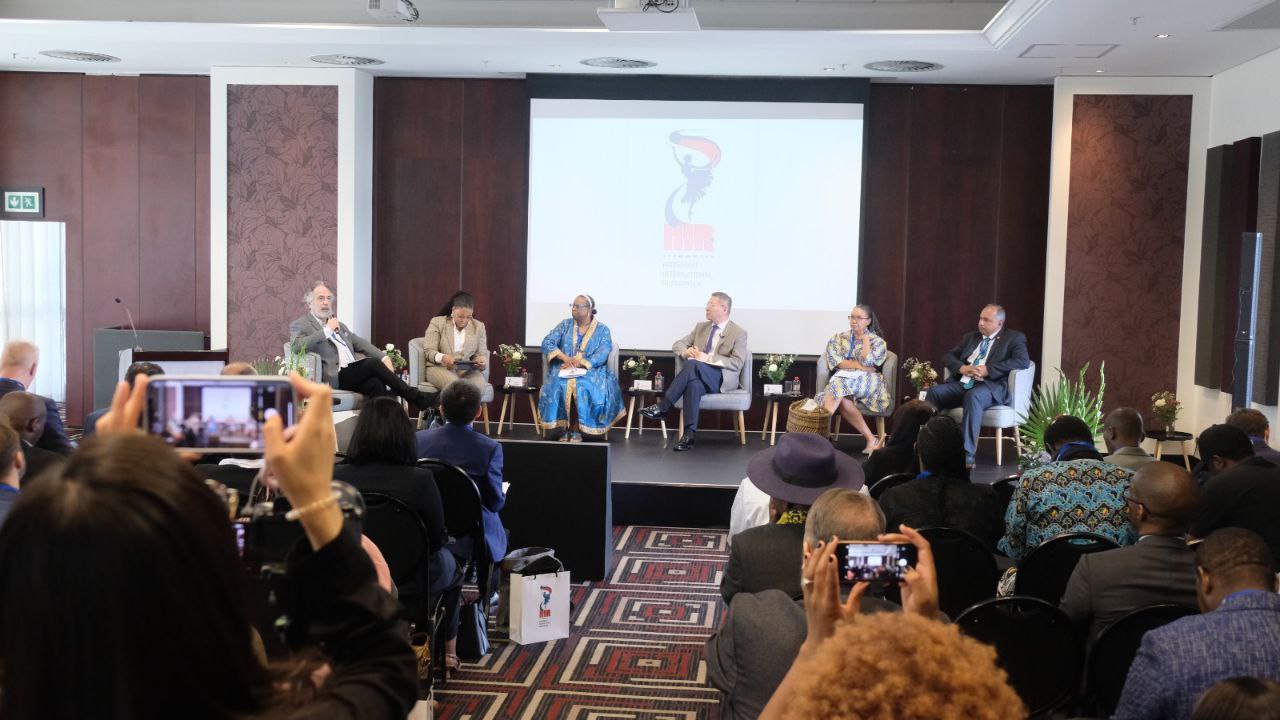
It’s as if this was an extension of the memorable BRICS 2024 summit in Kazan.
In Kazan, BRICS de facto expanded out of 9 members, adding 13 member-partners and reaching 22 nations (Saudi Arabia, an immensely complex case, remains on the fence). BRICS+ now largely surpasses the – waning – influence of the G20, whose annual summit is ongoing in Rio, at least focused on social issues and the fight against poverty and hunger, and not war. Still, the crisis-riddled G7/NATOstan did try to hijack the agenda.
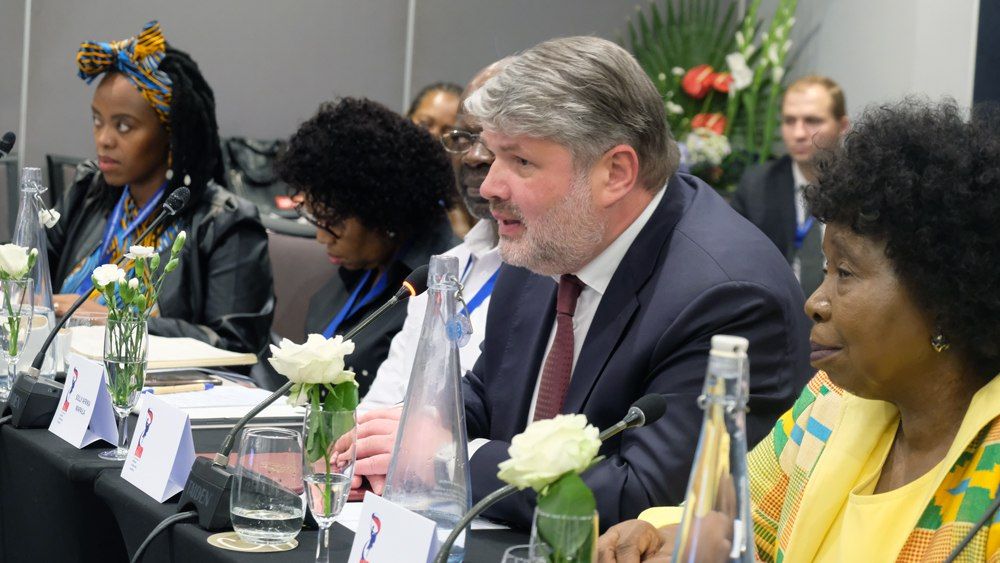
The real de-colonization starts now
For all practical purposes, and borrowing from one of Xi’s metaphors, BRICS+ has already set sail exploring the lineaments of a new, just, fair world order.
In Johannesburg, the sterling analytical quality of South African interlocutors, plus contributions from Mali and Senegal, was a source of pure joy.
The tone was realist, critical, hopeful – ranging from Nomvula Mokonyane, chairperson of the African National Congress (ANC) international relations committee, and a firm supporter of Palestine/Gaza, Cuba and Western Sahara, to former Minister of Foreign Affairs Dr. Nkosazana Dlamini-Zuma; from Sikelela Mgalagala, an entrepreneur and graduate of the Belarusian State Agrarian University, to extremely accomplished media entrepreneur and receiver of a special prize at a BRICS forum in Sochi, Nonkululeko Mantula; from Senegalese Souleyman Ndiaye, deputy secretary-general of the International Russophile Movement, to Mali’s Amadou Gambi; from crack geopolitical analyst Joe Mshalla to former diplomat Botsang Moiloa, a heir to the royal aristocracy of Botswana and Lesotho and a man of unbounded energy.
Unequal Africa in numbers is always a staggering proposition – inviting deep reflection. What could be defined as The Big Five – Algeria, Egypt, Nigeria, Ethiopia and South Africa – are responsible for no less than half of Africa’s GDP.
Three of these are now full BRICS members, and the other two are BRICS partners.
Pretoria-based legal expert Dr. Andre Thomashausen provided extra startling figures.
Africa, with 20% of the earth’s landmass – in which China, India, U.S. and Europe could easily “fit” – and 30% of the globe’s natural resources (including critical minerals such as lithium), not to mention 17% of the world’s population (1.3 billion people), accounts for only 2.8% of the world’s GDP.
The conclusion is inevitable: the IMF and the World Bank ultimately failed Africa. In 2025, Africa will be home to no less than 8% of the world’s poor.
A new pan-Africa development model, away from the Bretton Woods system, is beyond imperative. And Russia has all it takes to play a leading role.
No African nation implemented or enforced western sanctions on Russia. As Thomashausen recalled, at the 2023 St. Petersburg Economic Forum President Putin offered to donate grain to African nations, and later did not condemn military coups in West Africa, unlike the African Union – totally understanding the anti-colonization drive.
Russia is strategically replacing France in West Africa and strongly supports the Alliance of Sahel States (Mali, Niger, Burkina Faso).
Thomashausen noted that even as Russia’s involvement in Africa lags compared to other powers, Moscow managed to accumulate considerable soft power with only 5% of Chinese investments, creating political leverage with deals in agro-industries, security, nuclear energy and mining: ‘It has all but eliminated French influence. Its security service offerings have trumped U.S. and EU.”
Shaping a “new blueprint”
One of the key themes of the discussions in Johannesburg was Africa’s civilizational rule.
The inestimable Prof. Zhang Weiwei from Fudan University’s China Institute reaffirmed the “four evils” fought by China: racism, Islamophobia, Russophobia and Sinophobia. When it comes to shaping an “African civilizational community”, he suggested lessons to be learned by transposing the ASEAN model: the Southeast Asian consensual way.
As Prof. Zhang formulated, “while rules rule Europe, win-win rules Asia.” The key point when shaping a “cultural civilization structure” is “strategic patience: two steps forward, one step back.”
In Asia, China supports ASEAN centrality. Compare it with NATO, which bases itself on Divide and Rule: “The lesson for Africa is to invest in institutionalized cooperation. This could be an inspiration for Africa.”
Amadou Gambi from Mali extolled the great Mali empire of the 13th century in parallel now to “brave young soldiers bringing Mali to itself” within the Association of Sahel States.
Another key point of all discussions: as those who control the narrative control the future – and also the past – the great challenge for Africa is “The Decolonization of the Mind”, as stressed by several South African scholars.
Roman Ambarov, plenipotentiary ambassador of Russia in BRICS partner South Africa, chaired a U-table on ‘African Unity in a Multipolar World’. Significantly, right off the bat he quoted Putin quoting Nelson Mandela – “how many times I stood up after I fell”.
That led Dr. Nkosazana to address the most tortuous challenge: how to conform politically united Africa. It helps, she said, that “our most precious resource is people” and they are “young, educated, with skills.”
Dawie Roodt, chief economist of the Efficient Group, summarized the geoeconomic challenge: the need for a currency for all of Africa, “with a big capital market behind”. That would be linked to increased connectivity, the building of new cities and industries, and a renewed leadership.
Prof. Zhang Weiwei once again focused on the China model as “unite and prosper”, focusing on “people’s livelihood first”, with tangible results. He qualified Putin as “a true revolutionary”, in contrast with China since Deng Xiaoping as “reformist” – and recalled when China had a lower per capita income than Malawi.
China then carried out “essential revolutions”, as the social index went up; that was the foundation for subsequent development. As for the model, it’s “selection, not elections”: the Communist Party of China (CPC) is “holistic”. Deng said “yes” to economic globalization – but selectively; and “no” to political globalization.
A key theme for most speakers is that building Africa unity leads to African agency: from geopolitical recipient to geopolitical actor, with non-alignment intimately linked to the pursuit of autonomy. Out of 55 nations – 27% of the UN – no less than 28 African nations were colonized by France. Finally real post-French de-colonization is on the move.
Mali’s Amadou Gambi focused on the exhilarating history of African unity, addressed step by step. That will eventually transform into competitive advantages, and Africa’s capacity to negotiate as a collective. As Sikelela Mgalagala stressed, the “new blueprint” should be created by Africa, using, for instance, BRI to get advantages and BRICS as a major tool.
A consensus emerged among all African participants that Africa now essentially needs political will to fight infrastructural problems, a human capital deficit and an institutional deficit. So institutions must be fixed – in parallel to the process of fighting against cultural (re)colonization.
It was up to the redoubtable Cynthia McKinney – backed by her six terms at the U.S. Congress – to introduce a note of deep realism. Africa may now be on the road to affirm itself. But no one should be fooled: what happened to Gadaffi was just a sample of how far the usual suspects are willing to go to prevent African agency. The new political leadership must be fully aware that the deeper they go, “they run the risk of being killed”.












